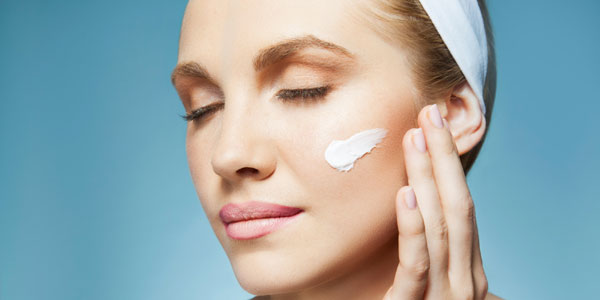Hyaluronic acid. It is customary to associate this name with the aesthetic beauty of the skin in particular. But what are the pros and cons of hyaluronic acid?
Don't store avocado like this: it's dangerousHyaluronic acid. It is customary to associate this name with aesthetics and beauty, in particular of skin. In fact, there are creams and products based on this substance on the market but also real supplements to be taken by mouth. But what are the pros and cons of hyaluronic acid?
Hyaluronic acid is a substance produced naturally by our body that uses it as fundamental component of connective tissue, actually a set of tissues of different composition that have the function of support and structure for other tissues and organs of our body.
It is thanks to hyaluronic acid that the skin remains young, supple and resistant. With the'advancing in age, however, the body produces less and less, so wrinkles, dry skin and other imperfections can begin to appear
READ also: DO-IT-YOURSELF ANTI-WRINKLE: 10 SELF-PRODUCED CREAMS AND REMEDIES
When using hyaluronic acid for aesthetic use, especially as a filler for wrinkles, you need to be very careful. This substance, in fact, it may be of avian origin (derived from cockscomb, known as Hylaform hyaluronic acid) or of bacterial origin (such as Restylane or Juvederm). It is best to ascertain the origin of this ingredient before purchasing products or undergoing hyaluronic acid treatments.
ADVANTAGES
Currently thehyaluronic acid is used with many advantages in different branches not only ofaesthetics but also of the medicine. All of you will have noticed creams or other beauty products based on hyaluronic acid, a substance that has strong anti-aging qualities and which is therefore used as a powerful anti-wrinkle. Its positive effects are also noticeable on dry and sensitive skin, especially those of mature women who have less natural production of it.
Hyaluronic acid is able to stimulate the formation of collagen (connective tissue protein essential for the good health of skin, cartilage, bones, etc.), it also has anti-inflammatory properties, helps in healing and keeps viruses and bacteria away. With the use of this substance the skin will be very hydrated, hyaluronic acid in fact it tends to attract water and therefore to ensure greater tone.
READ also: DRY SKIN: NATURAL CAUSES AND REMEDIES FOR CHAPPED SKIN

A hyaluronic acid can also be made intern use. In fact, there are specific supplements recommended for those looking for a rejuvenating effect on skin and tissues but also for those who want to relieve the joints. For internal use, always ask your doctor for advice on doses and methods of intake.
In the field of aesthetic touchesthen, hyaluronic acid is used to correct imperfections in different areas of the body: lips, breasts, scars, age wrinkles on the face and more. Injecting this substance, in fact, allows to reactivate cell replication and consequently improve the softness, firmness and elasticity of the skin.
The uses of hyaluronic acid in medicine are also very interesting, for example this substance can be injected directly into the area of the joints affected by arthrosisi with the aim of lubricating the joint, protecting the cartilage and reducing the load to which the area is subjected.
This substance is also used in the ophthalmic field (to make eye drops or ointments) as it helps healing and tissue regeneration.
CONTRAINDICATIONS
Since it is a substance naturally present in our body, we cannot speak of real contraindications of hyaluronic acid in itself, as it is always well tolerated. Problems arise, and not only in this case, when one makes one excessive or misuse.
ALSO READ: 10 BAD HABITS THAT INCREASE WRINKLES
Le hyaluronic acid creams they can certainly generate problems of redness, allergies or other skin reactions but certainly not derived from the presence of this substance but rather from that of other components with which the product is made. As always, we remind you to pay attention to the INCI of what you buy.
Le infiltration they are generally safe but can create problems especially if done incorrectly. They can appear redness, swelling, bruising and various kinds of annoyances. In the case of knee infiltration, it is possible to later experience some pain or to see fluid spills appear in the treated area.
Avoid using hyaluronic acid during pregnancy and breastfeeding, given that there are no studies capable of proving its total safety in these very delicate periods of a woman's life.


























